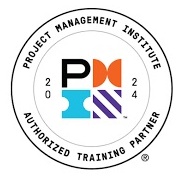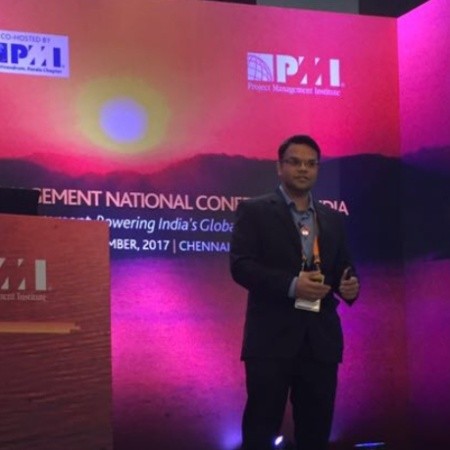PDU Course

 315 Google reviews
586 students enrolled
315 Google reviews
586 students enrolled
- 1. PMI- Approved 60 hours PDU Course.
- 2. Self-Paced Learning Module for three months.
- 3. Queries discussions through emails with certified Instructors.
- 4. Support to claim PDUs and CCR maintenance.
OUR ALUMNI
INSTRUCTOR LED TRAINING IN
| DATE | TIME | COURSE TYPE | PRICE |
|---|
|
No Training available |
||||
|---|---|---|---|---|
|
{{ training.From_Date }} - {{ training.To_Date }} {{ training.From_Date }} (1 Days) ({{ training.Training_Week_Type }}) ({{ training.DCount }} Days) ({{ training.Training_Week_Type }}) |
{{ training.From_Time }} - {{ training.To_Time }} |
{{ training.Currency_Type }} {{ training.Price }}.00
{{ training.Currency_Type }} {{ training.Offer_Price }}.00 valid till: {{ training.Valid_Date }} |
ENROLL NOW ENROLL NOW | |
| View More Batches View Less | ||||
Can't find convenient schedule? Let Us Know
DESCRIPTION
We understand that staying at the top of your professional game is crucial in today's ever-evolving business landscape. That's why we're here to support your journey to renewal through our comprehensive Continuing Certification Requirement (CCR) program. Our courses are carefully designed to not only fulfill your PDU requirements but also empower you with the knowledge and skills you need to excel in your field.
Why Choose our course for your Certification Renewal:
1. Expert Instructors: Our courses are designed by industry experts and professionals with a deep understanding of the subject matter. You'll learn from the best and gain practical insights that can be immediately applied to your work.
2. Flexible Learning Options: We understand that professionals have diverse schedules and learning preferences. That's why we offer self-paced online courses, allowing you to choose the format that suits you best.
3.Real-World Application: We emphasize practical knowledge and real-world scenarios in our courses, ensuring that you don't just memorize information but can confidently apply it to your projects and work environment.
4. Updated Content: Our course materials are continuously updated to reflect the latest industry trends, best practices, and emerging technologies. You'll always stay ahead of the curve.
5. Excellent Customer Support: Our dedicated support team is always ready to assist you with any queries or concerns. Your success is our top priority.
6. Competitive Pricing: We believe in providing high-quality education at an affordable cost. Our pricing structure is competitive, ensuring you get the best value for your investment.
7. PMI Approved PDUs: Our PDU courses are pre-approved by PMI. Hence, once you complete our course you will get the code to immediately renew your certifications.
Module one: Project Management Fundamentals (Total Duration: 16:00 Hours).
1. Introduction to project, project management and PMO role & responsibilities (Duration 03:12 hours).
2. Introduction to Tradition, Modern and Hybrid project life cycle (Duration 00:40 hours).
3. Introduction to Agile Values, Principles and Tools (Duration 01:48 hours).
4. Plan and Manage Schedule and Quality (Duration 04:33 hours).
5. Manage Communication, Project Artifacts, Change Management (Duration 04:06 hours).
6. Plan and Manage Procurement and Plan and establish governance structure (Duration 01:26 hours).
Module Two: Risk Management Fundamental.(Total Duration: 13:30 Hours).
1. Risk Management Key concepts and Principles (Duration 02:54 hours).
2. Risk Management Key Success Factors, Risk Classifications (Duration 03:26 hours).
3. Domains and Framework of/for Risk Management (Duration 03:43 hours).
4. Risk Management Life Cycle and Techniques (Duration 03:26 hours).
Module Three: Scrum Master Certified (SMC) and Scrum Product Owen Certified (SPOC) fundamentals.(Total Duration: 14:00 Hours).
1.Framework versus Methodology, Agile trend and the reason for agile failure (, Duration 02:26 hours).
2.Scrum Framework, Scrum Pillars, Scrum Events, When is Scrum RIght. (Duration 03:50 hours).
3.Scrum Plan and Estimates, Scrum Team, Developing EPICs. (Duration 03:26 hours).
4.Time boxing scrum ceremonies, Scrum Processes, Scrum Values, Scrum Pillars (Duration 03:51 hours).
Module Four: Certified Business Analysis Professional Course.(Total Duration: 34:00 Hours).
1. Certification Overview and the Business Analysis Core Concept Model (BACCM). (Duration 04:14 hours).
2. Business Analysis Stakeholders, Requirement Classification Schema. (Duration 04:22 hours).
3. Business analysis planning and monitoring knowledge area. (Duration 04:25 hours).
4. Elicitation and Collaboration Knowledge Area. (Duration 04:08 hours).
5. Requirements Life Cycle Knowledge Area. (Duration 04:11 hours).
6. Strategy Analysis Knowledge Area. (Duration 04:18 hours).
7. Requirement Analysis and Design Definition Knowledge Area. (Duration 04:00 hours).
8. Solution Evaluation Knowledge Area. (Duration 03:54 hours).
1. PMI- Approved 60 hours PDU Course.
2. Self-Paced Learning Module for Six months.
3. Queries discussions through emails with certified Instructor.
4. Support to claim PDUs and CCR maintenance.
Module One: Project Management Fundamental.
1. Understand the core principles of project management, ensuring a solid foundation for your career.
2. Learn practical skills that can be immediately applied to real projects, boosting your confidence and effectiveness.
3. Gain insights into how effective project management leads to on-time, on-budget project delivery with high-quality results.
4. Develop the skills to effectively communicate and collaborate with stakeholders, ensuring project alignment with organizational goals.
Module Two: Project Risk Management Fundamental.
1. Gain a deep understanding of the fundamental principles and concepts of project risk management to successfully identify, assess, and mitigate risks.
2. Learn various risk assessment techniques, including qualitative and quantitative methods, to accurately evaluate the potential impact and likelihood of risks.
3. Master the art of developing effective risk management plans and documentation that can be seamlessly integrated into your project management processes.
4. Acquire the skills to proactively identify and analyze risks by examining historical data, conducting brainstorming sessions, and utilizing risk registers.
5. Explore a variety of risk response strategies, such as risk avoidance, mitigation, transfer, or acceptance, and understand how to select the most appropriate strategy for each situation.
6. Learn how to continually monitor, track, and control project risks, ensuring that your project stays on course and within budget.
Module Three: Scrum Master and Scrum Product Owner Certification Fundamental.
1. Understand the core principles of Scrum, including empirical process control, self-organization, and cross-functional teams.
2. Gain a deep understanding of the Scrum framework, its ceremonies (Daily Standup, Sprint Planning, Review, and Retrospective), and artifacts (Product Backlog, Sprint Backlog, and Increment).
3. Learn the key responsibilities and skills required to be an effective Scrum Master, including facilitating events, coaching the team, and removing impediments.
4. Learn techniques for fostering collaboration, communication, and transparency within your Scrum team.
5. Discover how to plan, execute, and review Sprints, ensuring that your team consistently delivers value to stakeholders.
6. Embrace the concept of servant leadership and how it contributes to a successful Scrum Master role.
Module Four: Certified Business Analysis Professional Certification Fundamental.
1. Gain a deep understanding of the core competencies required for business analysis professionals, including requirements analysis, business process modeling, and stakeholder engagement.
2. Prepare comprehensively for the CBAP certification exam, covering all the knowledge areas and concepts outlined in the BABOK (Business Analysis Body of Knowledge) guide.
3. Learn how to align business analysis activities with organizational goals and strategies, becoming a strategic partner in decision-making processes.
4. Acquire techniques for gathering and analyzing requirements, enabling you to identify and prioritize business needs.
5. Gain expertise in process modeling and improvement methodologies to enhance efficiency and effectiveness within organizations.
6. Understand how business analysis fits into Agile and Scrum methodologies, adapting to changing requirements and delivering value incrementally.
.png) Project Management
Project Management Agile and Scrum
Agile and Scrum Business Management
Business Management Technical Training
Technical Training Quality Management
Quality Management













